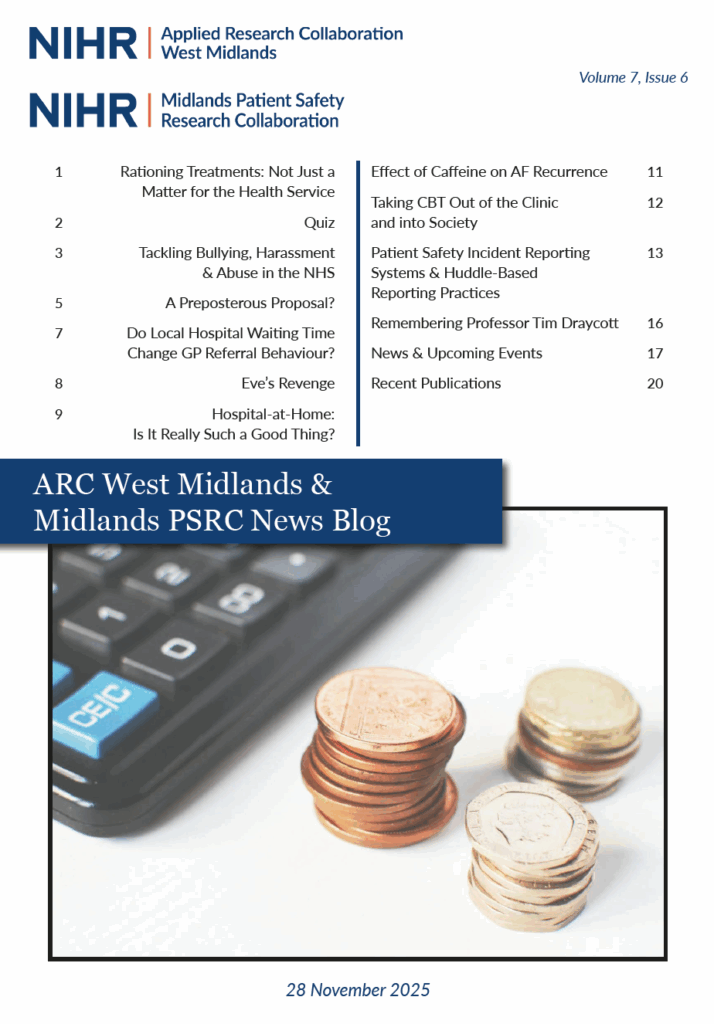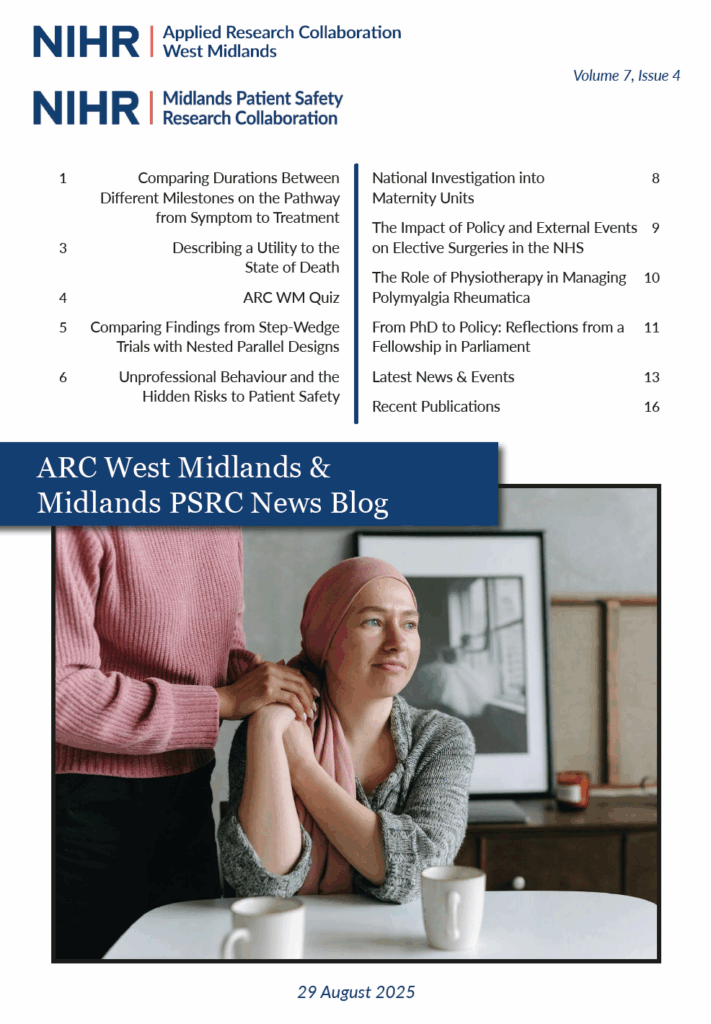Hospital at Home*: Is It Really Such a Good Thing?
Prof Richard Lilford looks at the extent to which hospital-at-home policies should be utilised.
Prof Richard Lilford looks at the extent to which hospital-at-home policies should be utilised.

ARC West Midlands was deeply saddened to learn of the death of Dr Mark Tompkins, who was awarded his PhD from the University of Birmingham in July 2025 for his research on Older People and Unpaid Carers’ Experiences of Hospital-at-Home.

The November issue of your News Blog contains thoughts on rationing treatments and how it might not just be a matter for the health service.
Details of a recent report on the impact of rare kidney diseases in the UK.
ARC WM Director Richard Lilford presents an argument for changing the cost threshold for QALYs on the basis that the focus on only health and social care is too narrow.
This report looks into stakeholder perspectives of ‘Together We Can’ (a service that supports neighbours to work together to improve their community) to inform the next stage of their strategy and to provide a foundation for future research design. It provides insights in relation to the benefits for local people and agencies from TWC, and how the partnership is seen to achieve these outcomes.
That wealthy nations are healthier than less wealthy nations is supported by many studies. But can improving health improve wealth at a population level?

The October issue of your News Blog contains thoughts on the link between improving health leading to improving wealth at a population level.
Building on previous work, Richard Lilford discusses the arguments and counter arguments regarding including the state of death in utility analysis.

The August issue of your News Blog contains thoughts on comparing durations between different milestones on the pathway from symptom to treatment

A recent study shows how a 2002 NHS policy, the 2008 recession, and COVID-19 impacted cancelled operations. While the policy was initially effective, it failed under the pressure of the pandemic.

Systematic recall bias may skew retrospective cancer delay studies. This effect, where distant events seem more recent, could exaggerate the time from first presentation to treatment. The article proposes a method to empirically test this hypothesis using existing cancer delay data.